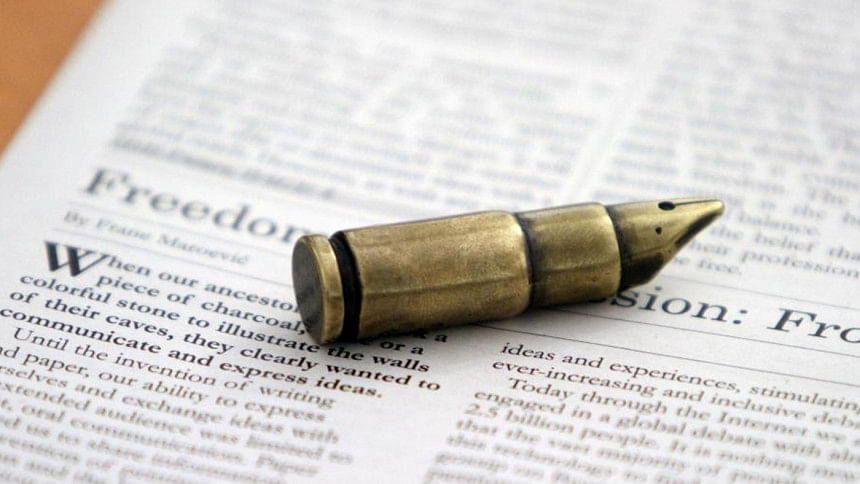Journalists must be protected from harm’s way

Killed, maimed, jailed, sued, bullied and harassed in various other ways, journalists are under growing pressure across the world. With the addition of "virtual violence", the threats facing the fourth estate are profound and many. Often, especially in war-torn countries as well as countries run by dictators and pseudo-democratic governments, it is the state that is undermining, delegitimising and even endangering their work through calculated policies, exacerbating the risks they face. We get a gist of the situation from the Death Watch list released by the International Press Institute (IPI) on the eve of the International Day to End Impunity for Crimes against Journalists on November 2. According to the list, at least 52 journalists, including one in Bangladesh, lost their lives due to their work since October 2019, of which 24 were murdered in targeted attacks. "The unbroken cycle of impunity for crimes against journalists fuels further violence against the press," said a statement by the IPI.
In Bangladesh, we remain concerned about the insufficient response by the authorities to various crimes being committed against journalists as well as the repressive policies adopted by the government itself, including the Digital Security Act, undermining press freedom. The pandemic has brought new challenges for the journalists. According to a report by the Reporters Without Borders published earlier last month, at least 16 journalists have been victims of "serious violence" in Bangladesh since the start of the year. This is in addition to the numerous instances of attacks, intimidation, harassment, arrests and lawsuits against journalists recorded by other organisations. The alarmingly insufficient response from the government has emboldend the perpetrators as well as suppressed the freedom of media organisations. The cumulative effect of this situation is that journalists don't feel safe anymore—and media organisations are under pressure to toe the official line for their own survival.
This is not what a democracy looks like—of which an independent and ethical press is a vital component. Journalism is a public good and the government must respect and protect it in the greater interest of the public. We urge the government to undertake appropriate measures to address the physical and psychological safety concerns of journalists and create an enabling environment for the free flow of information and opinion. Freedom of speech and freedom of the press are closely intertwined. We cannot achieve one without achieving the other. So the government must ensure that both thrive in equal measure, especially at a time when both are essential to curb the pandemic and its far-reaching and multidimensional effects.

 For all latest news, follow The Daily Star's Google News channel.
For all latest news, follow The Daily Star's Google News channel. 



Comments